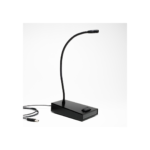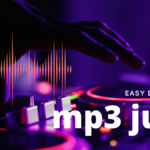All You Need to Know About MP3 Juice and Copyright Infringement
Users can download and convert audio files into MP3 format using the website MP3 Juice. The website has, however, been the subject of debate because of the possibility of copyright violation. Anything you need to know about MP3 Juice and copyright infringement will be covered in this post.
It is crucial to first and foremost comprehend what copyright infringement is. When someone utilizes or reproduces another person’s work without that person’s consent, copyright infringement has occurred. This can apply to artwork like songs, films, novels, and other types of creative content. Copyright infringement is prohibited and is punishable by law with fines and even jail.
By hosting copyrighted material that can be downloaded without the owners’ consent, MP3 Juice operates in a grey area of the law. This indicates that using MP3 Juice may expose you to copyright infringement concerns and possible legal action.
Numerous musicians and members of the music industry have spoken out against MP3 Juice and other similar websites, claiming that they are harmful to the music business. The musicians and other professionals who worked to make the music are not supported when users download music for free from websites like MP3 Juice. This could result in lost income for the music business and make it more challenging for musicians to release new music.
Furthermore to the moral and legal issues around copyright infringement, individuals who download music from websites like MP3 Juice could face dangers. These websites are frequently riddled with spyware and viruses that can damage users’ systems and steal personal data. Users that download from these websites may also be vulnerable to phishing scams and other types of criminality.
So what can you do to protect yourself when downloading music and prevent copyright infringement? Here are some pointers:
- Utilize trustworthy sources: Instead of downloading music from sites like MP3 Juice, think about using trustworthy sources like iTunes, Amazon, or Google Play. Even though you might have to pay for the music, you can be sure that by doing so you are helping the musicians and other professionals who worked hard to make it.
- Verify the copyright details: When downloading music from any source, make sure to verify the copyright details. It is prudent to err on the side of caution and assume that a song is copyrighted if you are unsure whether it is or not.
- Recognize fair use: Fair use is a legal principle that permits the restricted use of content protected by copyright without the owner’s consent. This includes using protected content for critique, commentary, or education. Before using copyrighted content in this way, it’s crucial to understand the intricacies of fair use because it’s a tricky area of the law.
- Employ a virtual private network (VPN): By encrypting your internet connection and hiding your IP address, a VPN can help you safeguard your online privacy and security. This could make it more challenging for copyright holders to monitor your online behavior and even file a lawsuit against you.
- Recognize the repercussions: It’s critical to recognize the possible repercussions of copyright violations. If it is discovered that you downloaded or distributed copyrighted content without authorization, you may be subject to penalties and possible jail time. Additionally, you may face costly and time-consuming legal action from copyright holders.
Conclusion
In conclusion, even though MP3 Juice and similar websites may appear like a practical way to get music for free, it’s crucial to be aware of the risks. By using these websites, you run the risk of violating someone else’s copyright and facing legal repercussions. Furthermore, these websites may serve as a breeding ground for viruses and other malware, endangering the security of your personal data. It is best to use reputable sources when downloading music and to be aware of the ethical and legal repercussions of utilizing copyrighted content without authorization in order to protect oneself and prevent copyright infringement.







